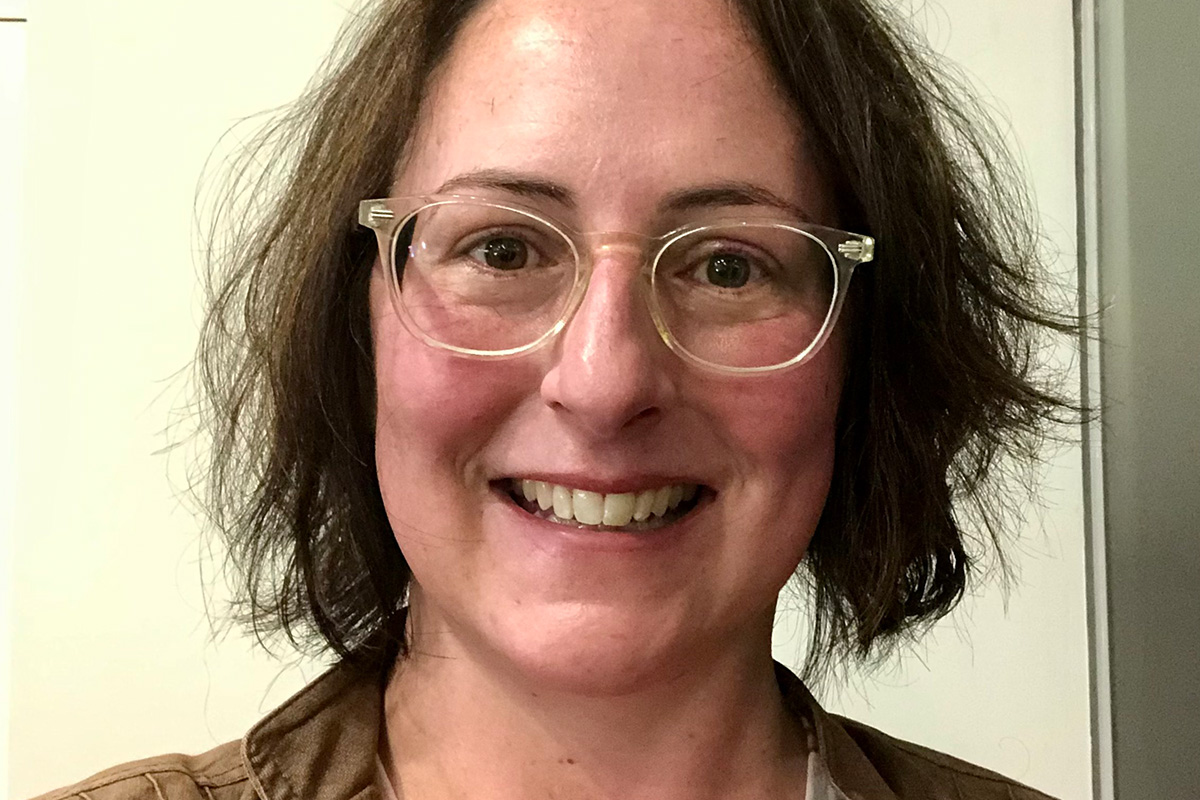Alisha wanted to be open and honest with her employer about her endometriosis and adenomyosis. She didn’t think it would start a roller coaster of bullying, stress and fighting for her rights at work. A recent breast cancer diagnosis has given her even more to contend with.
When Alisha’s endo symptoms started getting worse, she wanted to do everything right by her employer. ‘I had been really open and honest with my employer at the time,’ she says.
She’d been a permanent employee of the organisation for over 10 years. Alisha needed time off for appointments and thought her employer would be supportive, so she told them about her endometriosis and irritable bowel syndrome (IBS). Not long after, the workplace she was loyal to stopped feeling safe.
She started getting bullied to the point where they timed her toilet breaks. Her managers requested a medical certificate every time she needed leave. They didn't ask this of any other employee.
‘Because you're under so much stress and anxiety, it amplifies the pain and the symptoms you're experiencing from your health issues. During that time, the pain that I had from the endometriosis was massively amplified,’ Alisha says.
It ended with the organisation saying they couldn’t guarantee a safe workplace for her. Alisha went to mediation with the Fair Work Commission but had to cope with losing the security of her position.
She needed a change and decided to follow her passion for food and wine. It took her across the country as a cellar hand, assistant winemaker and sommelier.
‘Since then, I've been on a roller coaster in and out of casual and labour hire contract jobs. Both office jobs and hospitality. Basically taking on whatever work I've been offered over the last four years to the detriment of my physical and mental health.’
After the reaction she experienced to her endometriosis in her last job, Alisha tried not telling her next workplace. She started a contract position and needed a couple of sick days off in the first three weeks. Her contract was promptly terminated.
‘It's kind of like you're damned if you tell an organisation, an employer, about your endo. And then you're also damned if you don't,’ Alisha says.
Navigating the health system
Work wasn't the only domain she had to fight to get her health recognised. Alisha has many stories about the devastating impact endometriosis has on her life and her health. Once she took the tram to Emergency with a burst ovarian cyst, where they told her they couldn't do anything. Another time with excruciating pain, she struggled through a work shift on her feet before heading, again by tram, to the hospital.
‘I've been through a lot of painful stuff, so I do tend to appear to be a bit stronger than what I actually am,’ Alisha says.
‘My GP specifically said to me one time before she referred me to a hospital, “Whatever you do, don't put on a brave face. Actually show them how much pain you're in. Otherwise, they won't take you seriously.”’
Her first appointment with an excision specialist was a positive change. ‘I didn’t even have to beg,’ she says. The specialist listened to her and booked her in for endometriosis surgery.
Alisha’s breast cancer treatment
At the end of 2020, Alisha learnt she had stage two breast cancer. The breast cancer was hormone receptive, which means it used hormones (oestrogen) to continue growing.
She had surgery and started treatment with chemotherapy and hormone therapy. Hormone therapy can be a treatment for both breast cancer and endometriosis. By chance, Alisha suddenly had relief from all her abdominal and ovary pain.
‘It was like wow, even though I'm having chemotherapy, it's the first time I've actually felt the most alive in seven years because I didn't have chronic pain.’
Her breast cancer treatment gave her a glimpse of the care she desperately wanted for endometriosis. There were no long waits or needing to convince specialists to do tests and treatments.
‘The second that you've got a diagnosis of cancer, all of a sudden, these doors open,’ Alisha says.
‘Whereas with endometriosis, it's like, “Oh, have you tried this, or have you tried that. You know it might be in your head. You're just making it up, oh just suck it up, princess.”’
This year, Alisha had an oophorectomy (surgery to remove the ovaries) for breast cancer. She had wanted it done with her hysterectomy in June 2020 for endo but couldn't.
She is now symptom-free from endometriosis and adenomyosis and feels optimistic about staying that way.
The financial effects of endo
Alisha spent years trying to juggle her health expenses during unstable employment. She had to make drastic and heartbreaking decisions sometimes: health costs vs food.
In 2020, she finally got a break. She was already behind on her mortgage payments, but Covid stopped the bank from foreclosing on her home. The JobKeeper program meant she had a stable stream of income for the first time in four years.
Finally, her super fund approved her income protection insurance claim with back payments. Alisha encourages others to see if they may be eligible. She says endometriosis played a large role in keeping her from working for so long.
What’s next for Alisha?
Her focus right now is the rehabilitation phase of breast cancer treatment. She still loves landscape photography, experimenting with cooking and wine and sake pairing.
When it’s time, she knows what to look for in an employer.
‘It's a two-way street. As much as you're being interviewed for a job, you also need to keep in your mind that you're also interviewing that organisation.
‘Moving forward, I need to have an employer that is understanding of health issues. Somebody who's going to be empathetic, compassionate and understanding. And a workplace that's going to be flexible and accommodating.’
Above all, she wants to be ‘treated like an adult’ at work. She had a great experience with a flexible contract job. They allowed her to set her office starts and finishes, provided she worked 38 hours a week.
‘If I needed to leave early for a doctor's appointment or to go see a specialist, I could. I would just make up the time another day,’ Alisha says.
And she has unexpected skills that come from her health experiences. ‘You feel a bit like a project manager of your own body, in terms of having to coordinate and make sure that all your different specialists are talking to each other and everybody knows what's going on.’
What are your rights at work with endometriosis?
Safe Work Australia’s endometriosis fact sheet for employers states, ‘severe endometriosis can amount to a physical disability’. It’s illegal to discriminate and not make reasonable adjustments for people with disabilities.
The fact sheet guides employers on how to support workers with endometriosis. Support can include flexible arrangements and including chronic diseases in policies and procedures.
About endometriosis
- What is endometriosis
- What causes endometriosis
- What are the symptoms
- What are the risk factors
- Myths surrounding endometriosis
- Epworth Endometriosis Patient Guide

